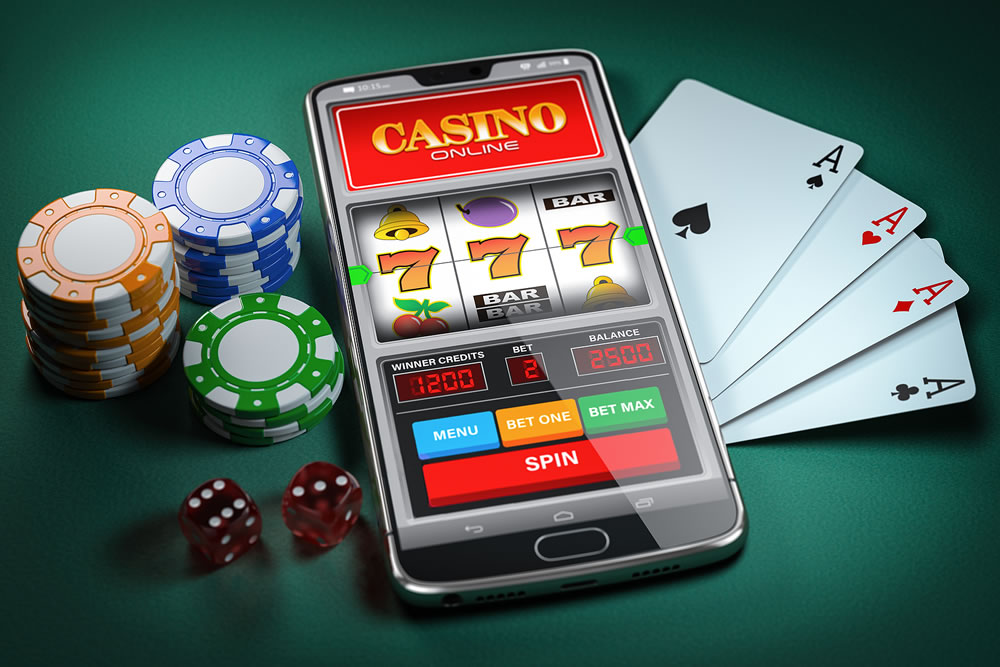Casinos have long been associated with glamour and opulence, and although these days high-rollers are just as likely to be found playing online as they are offline, the concept is steeped in a rich history that goes back centuries and that has helped to shape both land-based and digital casinos as we know them today.
Having evolved from humble beginnings to become a global industry worth billions of dollars, the first land-based casinos were less out-there luxury and more underground secret, but over time, as gambling laws relaxed and the pastime became more widely accepted, they became lavish playgrounds of the rich and famous.
In today’s fast-paced, always-on world, convenience and accessibility are everything, so it was only a matter of time before games like roulette, poker and blackjack made their way into the online space – but how exactly did the transition occur and change the landscape so dramatically? We asked the experts at PlatinPlay, an online platform showcasing the best casino bonus sites, to share how the concept of the casino has changed over the years, and as you’ll see, it’s been quite the journey.

From ancient beginnings
It might surprise you to learn that the concept of gambling dates back to ancient civilisations, who were the first to begin playing games for rewards. Archaeological evidence suggests that the Chinese were playing basic betting games as early as 2300 BC, with the Egyptians, Greeks, and Romans also dipping their toes into the water with games of their own. Whilst there’s no denying that today’s casinos are a far cry from the casual gameplay that would have been seen at the time, they planted a seed of an idea that has slowly but surely gone on to flourish.
The modern casino is born
The first actual casino opened in Venice, Italy in 1638. Many people don’t know that casinos were born in the nation, but the Ridotto was the first government-sanctioned gambling house in the world, and served as a controlled environment where patrons could try their luck at some of the earliest casino games. Laying the groundwork for the proliferation of casinos across Europe, many more began to spring up over the years that followed, but it was still some years before legal establishments would reach Las Vegas, the modern casino capital of the world.
Las Vegas becomes a gambling mecca
Fast-forward to the 20th century, and gambling was finally legalised in the US state of Nevada. In 1931, the move saw a flurry of casinos pop up in relatively quick succession, attracting both domestic and international visitors and slowly but surely gaining widespread recognition. Iconic establishments such as the Flamingo, founded by Bugsy Siegel in 1946, helped establish Las Vegas as a premier destination for high-stakes gaming and entertainment, and the development of Sin City has shown no signs of slowing down in the years since then.

Further US states follow suit
Las Vegas became so successful that other regions gradually began to recognise the lucrative opportunities that came with the legalisation of gambling, and sought to capitalise on the burgeoning industry themselves. It didn’t happen overnight; gambling wasn’t given the green light in Atlantic City, New Jersey until 1978, but from then onwards it, too, quickly became a high-rolling hot spot, with famous venues like the Trump Taj Mahal and the Borgata opening their doors.
The global expansion
The late 20th and early 21st centuries saw casino gaming go global, with continents and countries that had long resisted gambling finally relaxing their laws. Macau, often referred to as the ‘Monte Carlo of the East’, is a prime example of just how quickly and dramatically things have changed, becoming a major gambling hub seemingly overnight and quickly surpassing Las Vegas’ annual casino revenue. Elsewhere in Asia, we’ve also seen countries like Singapore and the Philippines relent when it comes to their stance on gambling, and developing thriving and economy-boosting casino industries of their own.
The digital revolution
Over recent years, we’ve seen some impressive developments and tech innovations that have transformed the casino industry. The first changes we saw were small yet significant; the invention of the first mechanical slot machine, the Liberty Bell, by Charles Fey in 1895 paved the way for the development of more sophisticated slot machines, which have since become a mainstay in casinos across the globe.
Surprisingly, video poker came about in the 1970s, and was another early sign that casinos had the potential to adapt to the changing behaviours and preferences of gamblers. The first electronic way to enjoy favourite casino games garnered plenty of attention but never really took off, but they did spark the beginning of a wider move towards the electronic gaming machines we know and love today, which now take on an array of different themes and formats.

The first fully-functioning gambling software was developed in the early 90s, only shortly after the advent of the internet, and in 1994, with safe digital transactions now viable, the first-ever online casino was launched. This followed on from the passing of the Free Trade and Processing Act in Antigua and Barbuda, which made it possible for operators to obtain licenses and offer online gambling services, signalling the start of a whole new era for casinos.
Once mobile gaming arrived on the scene, with apps allowing players to log on and indulge in their favourite games anywhere, anytime, the online casino market really exploded, and today, the integration of cryptocurrency and blockchain technology has taken both the gaming experience and global gambling revenue to a whole new level.
The future of casino gaming
As you can see, it’s been quite the journey to get to where we are today – but what can we expect to see next in the casino space?
Well, more immersive experiences are already beginning to make their way in thanks to innovations like virtual and augmented reality, and over the next few years we’ll likely see them become the norm. And with artificial intelligence and machine learning poised to continue elevating customer service and their online experiences, we’ll see more personalised and bespoke offerings across the board. Machine learning algorithms can also help detect fraudulent activity and enhance security measures, so players will feel safer online than ever before.
The future certainly looks bright, and as technology continues to advance, who knows where we’ll be in another ten or twenty years from now?
Please gamble responsibly (18+ UK) – check age restrictions before participating






















